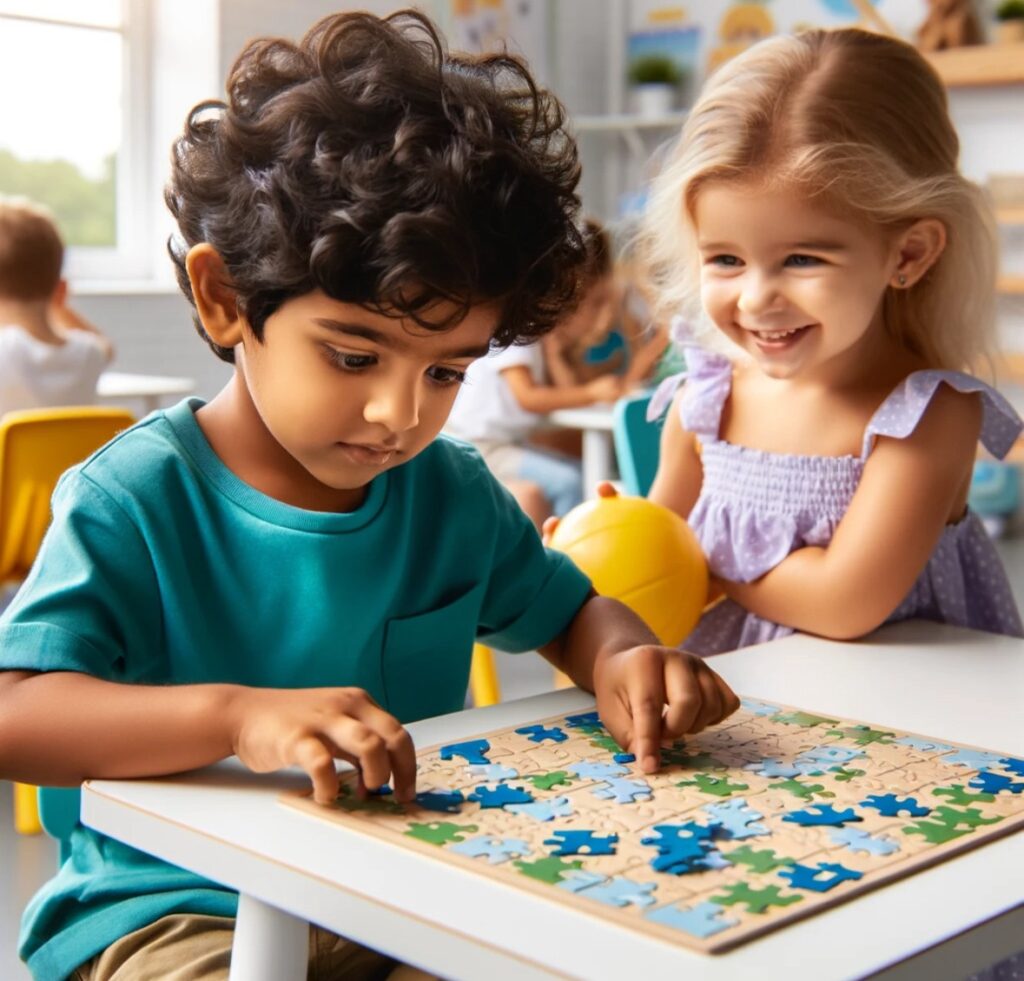Playing with puzzles is a fundamental activity in early childhood development, offering a multitude of cognitive, physical, and emotional benefits. Recognizing the importance of puzzles, the Academy of Excellence Preschool incorporates them into our curriculum starting from the infant room. Here’s why puzzles are essential in the developmental stages of young children, supported by research findings:
Cognitive Development
Puzzles are incredibly effective for enhancing cognitive development. They challenge children to think analytically, improve their problem-solving skills, and develop reasoning and thought processes. According to a study published in Early Childhood Education Journal, puzzles can significantly aid in improving a child’s spatial skills, which are predictive of future achievement in science, technology, engineering, and mathematics (STEM) fields.
Fine Motor Development
Puzzles require children to pick up, move, and fit pieces into specific spaces, which enhances fine motor skills and hand-eye coordination. This precise movement control is crucial for later skills such as writing and drawing. Research in Developmental Psychology highlights that engaging with puzzles helps develop a child’s fine motor skills and hand-eye coordination from a very early age.
Social and Emotional Skills
Working on puzzles, especially in a group, helps children learn to share, cooperate, and work collaboratively towards a common goal. This fosters teamwork and helps improve social interaction with peers. Moreover, completing a puzzle provides a sense of achievement and satisfaction, which boosts self-confidence and resilience, aspects highlighted in a study from Child Development Perspectives.
Language Skills
As children describe what they are doing or ask for a certain piece, they are also developing essential language skills. This verbal expression is encouraged in puzzle activities, enhancing both vocabulary and sentence structure in young learners.
Attention to Detail and Patience
Puzzles require attention to detail—as children must recognize color, shape, and size differences among pieces to understand where they fit. This focus and patience are crucial skills in all areas of learning and life, teaching children to be meticulous and persistent.
Why Puzzles at the Academy of Excellence
At the Academy of Excellence Preschool, we start incorporating simple puzzles right from the infant room to leverage these developmental benefits early. The puzzles are specifically designed to be age-appropriate, ensuring they are challenging yet achievable, which helps maintain children’s interest and encourages continual cognitive and physical growth.
Our curriculum integrates puzzles not only as a part of everyday play but also as a key component of our educational tools, promoting active learning through hands-on experience. By integrating these activities early, we prepare our students for future academic and life challenges, fostering a lifelong love for learning and problem-solving.
In conclusion, puzzles are more than just toys; they are vital educational tools that support comprehensive development in young children. At the Academy of Excellence, we recognize and harness the power of puzzles to enrich our students’ educational experience from the very start, setting a strong foundation for their growth and success.

